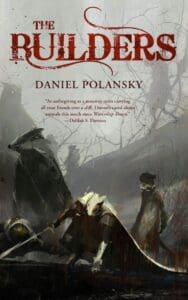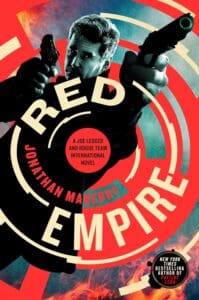
Synopsis:
After striking out on her own as a teen mom, Madi Price is forced to return to her hometown of Brandywine, Virginia, with her seventeen-year-old daughter. With nothing to her name, she scrapes together a living as a palm reader at the local farmers market.
It’s there that she connects with old high school flame Henry McCabe, now a reclusive local fisherman whose infant son, Skyler, went missing five years ago. Everyone in town is sure Skyler is dead, but when Madi reads Henry’s palm, she’s haunted by strange and disturbing visions that suggest otherwise. As she follows the thread of these visions, Madi discovers a terrifying nightmare waiting at the center of the labyrinth—and it’s coming for everyone she holds dear.
Review:
Clay McLeod Chapman is one of my absolute favourite contemporary horror writers, and despite the fact the man is an absolute machine, seriously an unstoppable force of heartache and horror, I’m having to pace myself a little. “What Kind of Mother,” is one I was saving as a treat, and best believe I gobbled it right on up. It tasted wrong: salty, rubbery, slightly slimy, but I devoured it nontheless. A briny and brackish grief horror, set in Clay’s Derry-equivalent “Bradywine,” “What Kind of Mother,” is a gut-wrenching, barnacle-crusted story with seaweed for veins and a storm brewing in its chest. It examines just how strong an emotion loss is, whether literal or metaphorical, and how sacrifice really may be the greatest form of love. The horror slaps like a wet fish, stings like a jellyfish, clings like a limpet, pinches like a crab, and draws blood. Me? I lay in bed all day and read it cover to cover in one painful, slightly feverish sitting… like a sea-cucumber. I’m running out of sea creatures to reference, so the headline is this: “What Kind of Mother,” delighted me, whilst hurting my feelings, and pouring salt in every wound. It It is a silk blanket cut from the same lush, grief-woven cloth as the rest of Chapman’s work.
We follow Madi Price who is forced to return to her home town of Brandywine Virginia when the estranged father of her daughter Kenda finally decides that he wants to play dad. With little else to anchor her, she decides to take up her grandmother’s mantle of palm reader, and starts telling fortunes at the market. Her own future is a decidedly foggy one, as it’s there that Henry McCabe walks back into her life, and since they dated for 3 months in high school, his life has changed drastically. He was married, and had a boy called Skyler, but now, after Skyler vanished at 8 months old, and his Grace hanged herself, he has nothing. Nothing but hope. He is convinced that his child, now six, is alive somewhere, and that Madi can help him find him.
Parenthood is a central theme in “What Kind of Mother,” that is raised in its very title. It is fully dissected and then reassembled. “What Kind of Mother?” is a question asked not once, but over and over in varying shades of tenderness and rage. It’s a constant, unrelenting, repetitive line of questioning that allows Chapman to unpick the very fabric of parenthood and lay bare the threads- love, guilt, desperation, failure, sacrifice. It’s examined, not in its instagram-filtered, starbucks in hand form, but in its raw, ugly elemental state. Madi and Henry are two grieving parents standing on opposite sides of the abyss. Henry is mourning the literal loss of his son Skyler, whilst Madi feels she has lost a part of Kendra to her father, and is full of doubt and guilt. It’s an exploration of the many forms loss can take, and the lengths we’re willing to go to, the compromises we’re happy to make, and the contortions we’re capable of in the name of love. What kind of mother was Grace? And what kind of mother is Madi?
Chapman knows his way around a grotesque set piece, whether it be a demon phone box, or a mutilated rabbit, and here there is no deficit of gore- I long for the times when I didn’t know what a peeler was. But as always, his brand of horror is not anatomical but emotional. This is a book in which pain has texture. The supernatural elements are uncanny, the body horror is grimace-worthy, but it’s the grief that is real, it’s the grief that lingers. It’s the grief that has tentacles and it’s grief that ultimately pulls the reader under.
Here in the UK, we don’t tend to eat much crab, which means that mercifully my new-found aversion to it is no great loss. Frankly, if it can’t be covered in batter, deep-fried and served with chips and a side of mushy peas, we’re not interested. Anyway, unlike Madi, I’m no psychic, however “What Kind of Mother,” is exactly the superb, salt-water, southern Gothic I knew it would be, and I continue to crave more from Chapman.









Leave a Reply